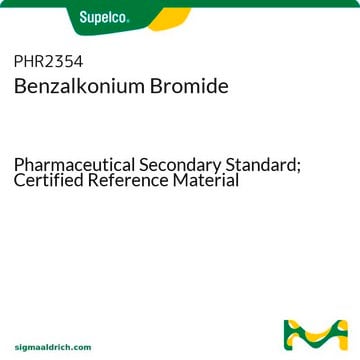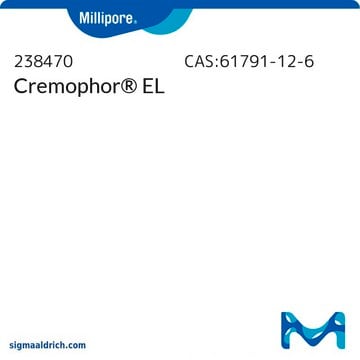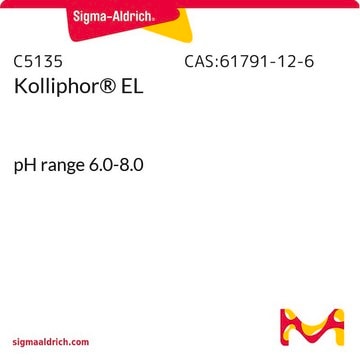13373
Benzyldodecyldimethylammonium bromide
≥99.0% (AT)
Synonym(s):
Benzyldimethyldodecylammonium bromide
About This Item
Recommended Products
description
cationic
Assay
≥99.0% (AT)
form
solid
mol wt
384.44 g/mol
SMILES string
[Br-].CCCCCCCCCCCC[N+](C)(C)Cc1ccccc1
InChI
1S/C21H38N.BrH/c1-4-5-6-7-8-9-10-11-12-16-19-22(2,3)20-21-17-14-13-15-18-21;/h13-15,17-18H,4-12,16,19-20H2,1-3H3;1H/q+1;/p-1
InChI key
KHSLHYAUZSPBIU-UHFFFAOYSA-M
Looking for similar products? Visit Product Comparison Guide
Signal Word
Danger
Hazard Statements
Precautionary Statements
Hazard Classifications
Acute Tox. 3 Oral - Eye Irrit. 2 - Skin Irrit. 2 - STOT SE 3
Target Organs
Respiratory system
Storage Class Code
6.1C - Combustible acute toxic Cat.3 / toxic compounds or compounds which causing chronic effects
WGK
WGK 2
Flash Point(F)
230.0 °F - closed cup
Flash Point(C)
110 °C - closed cup
Personal Protective Equipment
Choose from one of the most recent versions:
Certificates of Analysis (COA)
Don't see the Right Version?
If you require a particular version, you can look up a specific certificate by the Lot or Batch number.
Already Own This Product?
Find documentation for the products that you have recently purchased in the Document Library.
Customers Also Viewed
Our team of scientists has experience in all areas of research including Life Science, Material Science, Chemical Synthesis, Chromatography, Analytical and many others.
Contact Technical Service










